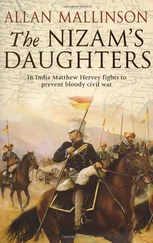‘I am sorry for it. How did he die?’
Perhaps it was Shelley’s concentration on the pen strokes that made him so direct, Hervey supposed, but it startled him nevertheless. ‘He died of a winter ague in Oxford.’
‘Fellow of which college?’
Hervey hesitated. ‘He was curate of a parish thereabouts. A poor one, I understand.’
Shelley stopped his sketching momentarily to look across at his companion. ‘I am sorry.’
‘He was a truly good man.’
But Shelley would not allow the mood to be sombre beyond the moment. ‘And no female has secured this sensible military man and his fortune?’
Coming so soon after mention of John Hervey, it was as if a spent ball had struck him square in the breast, knocking out the wind. It did not matter that he knew it must come at some time. ‘I was bereaved of my wife but a year ago.’
Shelley looked up again, his expression horrified. ‘You too? My dear fellow, my dear dear fellow …’ He placed his hand on Hervey’s forearm, squeezing hard to impart his sympathy.
Hervey knew of Shelley’s circumstances, for Elizabeth had told him. Harriet, Shelley’s estranged wife, had taken her own life scarcely two years before. The circumstances could not have been more different from his own, and yet he was not inclined to imagine another’s heartache was less than his. But although he might concede that, he was not yet inclined to entrust this man with his grief. He made no response.
‘Now I see the cause of last night’s melancholy, and the distance generally in your air. I pray you would tell me more of it.’
Shelley had laid aside his book, and he now looked him in the eye with a directness which spoke of candour. Hervey saw in that instant that if he did not now trust his grief to this man, he might never do so to any. He closed his prayer book, took a deep figurative breath, and began his story. He told of the earliest days, of Henrietta in the schoolroom, of his first going on campaign, of his returns and his fumbling courtship, of their becoming wed, and their short-lived bliss, and of the fruit of that passionate union. He told how he had struggled for half a year with his conscience respecting a craven and vindictive commanding officer and the obligation of loyalty to a superior. And then he related the circumstances and manner of Henrietta’s dying: a cold, lonely affair — terrifying, knowing, above all needless . In the course of not one half of one hour, Hervey supposed he had spoken of more with this man than with any living soul.
When he was finished, Shelley, who had sat throughout with arms clasped about his knees like a rapt schoolboy hearing some dorrying tale, gazed silently into Hervey’s eyes and saw what was left unsaid — yet which he knew must not remain so. ‘And your love’s cold grave is of your bringing, you believe.’
‘It is. I could own to no other’s accountability.’
‘Not even your craven commanding officer? His guilt seems amply proven.’
‘And that is the opinion of everyone. At his court martial he was censured for it, though there was no culpability in law. His destruction has given me no relief, though.’
Shelley looked out across the Roman plain. Countless thousands must have died by the hand of others there, and might do so again: why was a single life worth repining over? ‘I would read you some fragments of verse I am composing when you have the inclination to hear them.’
Hervey would not have wished for the consolation of Scripture at that moment. He returned the kindness with a thankful smile.
Shelley reached into his pocket for a second notebook. ‘You have read Goethe, so you will know the legend of Prometheus?’
‘That is to make of my erudition what it is not,’ warned Hervey, frowning. ‘But yes, I know the legend.’
‘You were reading last night of defying power which seems omnipotent.’
Hervey nodded. ‘And convincing it sounded.’
‘I write of Promethean resistance to the Furies, the ministers of pain and fear, disappointment, mistrust and hate. I write of the terrible alternative of giving way to Jupiter’s tyranny.’
Hervey saw a lofty analogy, yet was not dismayed, for Shelley’s was a wholly honest candour. ‘When you are ready to read it, I would listen.’
Shelley grasped his arm again. ‘My dear friend, the eagle tore at Prometheus’ vitals by day, and by night those vitals were restored, so that the evisceration could begin anew in the morning.’
Shelley’s warning, perhaps for its intensity, startled him. ‘Do you tell me the pain must endure, then? Is that how your verse shall end?’
‘No,’ said Shelley, shaking his head decidedly. ‘Jupiter shall be dethroned and Prometheus unbound, though I own I am undecided yet by what means. But until that day, Prometheus shall defy the Furies, or else it can never come. Here, let me read a little, rough-hewn as it still is.’
Shelley read him fragments, turning many pages at a time to find what he thought was most apt or diverting.
Hervey sat spellbound.
‘And this is how I conclude; perhaps you might recognize, now, of what it is I speak:
‘To suffer woes which Hope thinks infinite;
‘To forgive wrongs darker than death or night;
‘To defy Power, which seems omnipotent;
‘To love, and bear; to hope till Hope creates
‘From its own wreck the thing it contemplates;
‘Neither to change, nor falter, nor repent;
‘This, like thy glory, Titan, is to be
‘Good, great and joyous, beautiful and free;
‘This is alone Life, Joy, Empire, and Victory.’
Hervey did not know by what providence he had come to trust this man, so different in every doctrine and practice was Shelley to himself, but for the first time since Henrietta’s passing he wanted to speak his heart freely. And it seemed that here he might find the means to do so.
CHAPTER THREE. HEARTS OF OAK
Two weeks later
Elizabeth Hervey kept her journal indefatigably, certain that no one in her lifetime should read it but mindful that God knew her heart and, consequently, the truth of her entries. She took pleasure in her writing, and pride, too, for it allowed her the exercise of free thought as well as literary enterprise. However, the discovery that Shelley’s wife was an author, with work already published, had at first shaken her confidence. She felt somehow intimidated that not ten minutes’ walk from the Hervey lodgings sat a woman younger than her with far greater accomplishments. But Mary Shelley was a sick woman — of that, Elizabeth was certain. They had formed an attachment at once, rather as her brother had with Mary’s husband, but women’s matters perforce drew women into greater intimacy, and more quickly, than men. Elizabeth knew about sickness. She had seen a lifetime’s fill of it in the Warminster workhouse and, against her father’s will, in the hovels of the fencing crib that was Warminster Common. And she knew that Mary’s sickness was as much of the spirit as of the body. Mary had lost children (Elizabeth was not sure whether one or two), her infant son was far from well, and her husband had treated her with such indifference on occasions that Elizabeth wondered what love there might truly be between them. And then yesterday, while Shelley and Hervey rambled once more about the Terme and their womenfolk took tea together, Mary had told Elizabeth she was pregnant, that she had been so since February and had not yet told her husband.
This morning, after a breakfast of oranges and very sweet chocolate, Elizabeth sat at the open window of her sitting room, with its pleasant aspect on the garden slopes of the Pincio, and made her longest journal entry in a month. After recording her fears for Mary’s condition, she gave her opinion that her husband was, nevertheless, a very engaging man whose manners belie all that I had previously read or supposed, and whose regard for Matthew in his bereavement is evident and genuine, for they share something in this respect, I believe, though Matthew’s is infinitely more noble. Matthew for his part takes strength in their fellowship, and it is notable how freely he discourses on all manner of things that are novel and radical, for Mr Shelley is as eloquent in his speech in radical affairs as he is on the page, and he is very practised in the latter as we have known these several past years. It is a strange twist of fate that the two should meet and become intimates, and it could not have happened in England, where our relative positions would first have precluded it and then disallowed it. Perhaps it is one of the benefits of foreign travel, as is often said there are many, that one is propelled into intercourse with those whose society would otherwise be denied. Yet Matthew is far still from wholly sloughing off the melancholy, and I do so fear that our coming here will ultimately be to no purpose other than as a temporary amelioration.
Читать дальше










